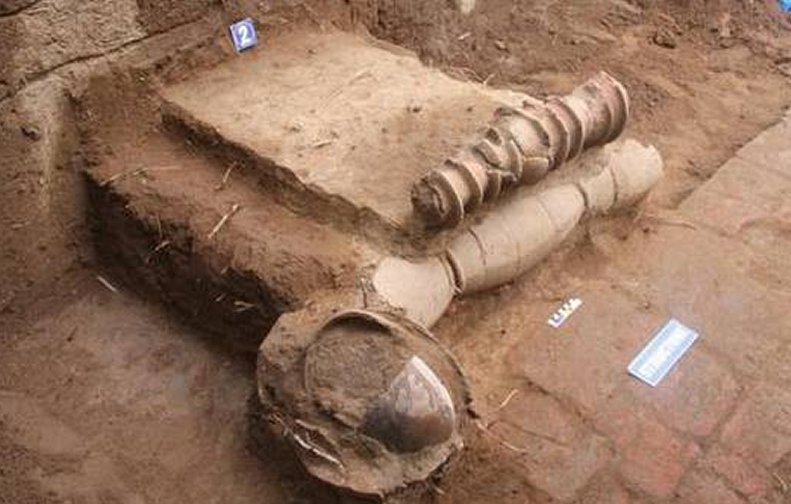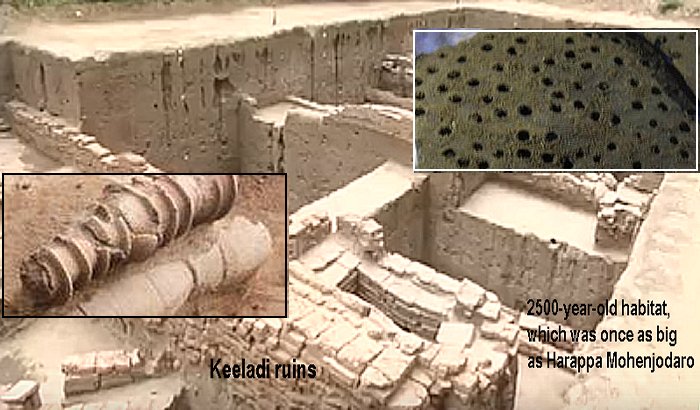Conny Waters - AncientPages.com - Keeladi (Keezhadi) is today an important archaeological site, located on the banks of the Vaigai River near the southern tip of India. Once in the past, Keeladi was an urban settlement of Sangam Age on the Banks of River Vaigai.
A 2,500-year-old Keeladi, Sivaganga District, Tamil Nadu was once a habitat as large as Harappa, Mohenjodaro.

The Hindu reports that two terracotta pipes found horizontally one upon another has been unearthed at Keeladi (Keezhadi), an excavation site where archaeologists recently concluded the fifth phase of excavations.
The pipes are considered unique among all terracotta pipes found at other excavation sites in Tamil Nadu, researchers say.
During the course of 5th excavation in a particular trench (YD 6/3), the workers found some terracotta structure with a few projections of rim portion at a regular gap of 6 cm.

This structure was found at a depth of 0.47 meters. Careful digging at this northeastern corner of the quadrant resulted in the unearthing of roofing tiles arranged vertically at a depth of 0.52 meters. Further, it revealed that the terracotta structure was a series of 10 terracotta pipes that were firmly fitted one into another to form a pipeline.
See also:
Keezhadi Excavations Reveal: Tamil-Brahmi Script Older Than Previously Thought
Excavations In Keezhadi, Tamil Nadu, India Shed Light On Life During Sangam Age
Evidence Of Sangam Age Settlement Unearthed At Nangur, Tamil Nadu
Mysterious Mohenjo Daro Was Home To An Unknown Advanced Civilization Far Ahead Of Its Time
R. Sivanandam of the Archaeological Survey of India and the director of Keeladi Excavation said that ‘this indicates that the pipeline could have been used for carrying protected water’.
The rims of the pipes gave a spiral shape to the pipeline. Besides, it had holes on its top and sides.
Just below this pipeline, there was another row of the different shaped terracotta pipeline consisting of three lengthy barrel-shaped terracotta tubes. This barrel-shaped pipeline had a different utility.
Archaeologists also discovered a major portion of a dish-shaped perforated lid that was fitted to the mouth of the barrel-shaped pipeline. It is believed that the lid may have filtered water or other liquids.
See also: More Archaeology News
According to researchers, 'different types of water channels, brick construction, evidence of trade relations with other domestic and foreign places, sign and letter usages only revealed that the civilization along the Vaigai river was advanced and had adopted highly progressive technologies.
Written by Conny Waters - AncientPages.com Staff Writer






